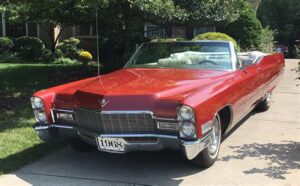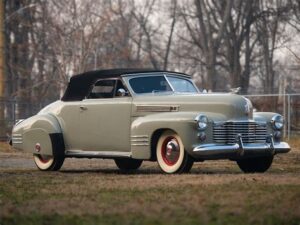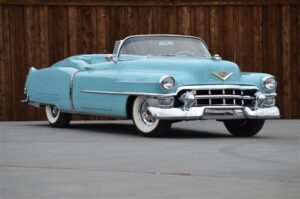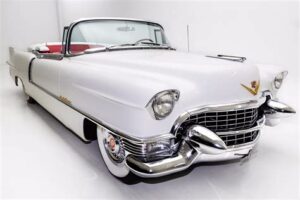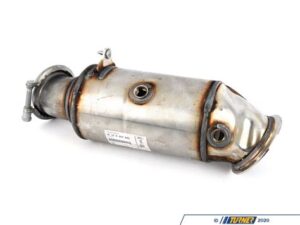Understanding Cadillac Converter Noise: A Guide to Your Vehicle’s Health
When it comes to maintaining your vehicle’s performance, one of the often-overlooked components is the Cadillac converter. This critical part plays a vital role in reducing harmful emissions and ensuring your engine runs smoothly. However, like any mechanical component, it can develop issues that may lead to notable noise symptoms. Understanding cadillac converter noise can help you identify potential problems early on and prevent costly repairs down the road. In this article, we will delve into the common causes of Cadillac converter noise, how it can impact your vehicle’s performance, and the symptoms to watch for. We will also guide you through diagnosing noise issues and determining when it’s time for a replacement. Keep your vehicle running optimally—read on to equip yourself with the knowledge you need to tackle Cadillac converter noise head-on.
Understanding Cadillac Converter Noise: Common Causes
Understanding the noise emanating from your cadillac converter is essential for maintaining your vehicle’s health. Several factors can contribute to this noise, and identifying them early can save you costly repairs down the road. Here are some common causes of cadillac converter noise:
| Cause | Description |
|---|---|
| Clogs and Restrictions | Over time, carbon buildup can restrict the flow of exhaust gases, leading to increased pressure and noise. |
| Damaged Heat Shield | If the heat shield surrounding the cadillac converter is damaged or loose, it can rattle, causing an annoying noise. |
| Internal Damage | Internal components, like the substrate or catalyst, may degrade or break apart, producing a rattling sound. |
| Exhaust Leaks | Holes or cracks in the exhaust system can create hissing or popping sounds that may be mistaken for cadillac converter noise. |
| Improper Installation | If the cadillac converter is not properly installed, it can shift or vibrate, leading to noise issues. |
Listening to the sounds produced by your vehicle can provide valuable insights into the state of the cadillac converter. By recognizing these common causes, you can take prompt action to ensure your vehicle continues to operate smoothly.
How Cadillac Converter Noise Affects Vehicle Performance
The cadillac converter plays a crucial role in maintaining your vehicle’s performance and efficiency. When this component starts making noise, it can indicate problems that might significantly impact engine performance. Here are some ways that noise from the cadillac converter can affect your vehicle:
- Reduced Engine Efficiency: A noisy cadillac converter often signifies that it is clogged or damaged. This can restrict exhaust flow, leading to reduced engine efficiency and decreased fuel economy.
- Increased Emissions: If the cadillac converter is failing, it may not effectively filter harmful gases, resulting in increased emissions. This can not only harm the environment but can also lead to failing emissions tests.
- Engine Performance Issues: A malfunctioning cadillac converter can cause your engine to experience a loss of power, reduced acceleration, or a rough idle. Such performance issues can be detrimentally noticeable, especially during acceleration.
- Potential Engine Damage: In severe cases, neglecting noise from the cadillac converter can lead to more extensive engine damage. If exhaust gases are not expelled properly, it can cause back pressure and strain on the engine components.
Thus, addressing any abnormal noises promptly can help maintain optimal vehicle performance and prevent further damage to the engine and related systems.
Identifying Symptoms of a Failing Cadillac Converter
Recognizing the symptoms of a failing cadillac converter is essential for maintaining your vehicle’s performance and preventing further damage. Below are some common indicators that your cadillac converter may be experiencing issues:
| Symptom | Description |
|---|---|
| Decreased Engine Performance | You may notice a lack of acceleration or sluggish performance when you press the gas pedal. |
| Unusual Noises | Audible rattling or clunking noises can indicate that the internal components of the cadillac converter are breaking apart. |
| Check Engine Light | If the check engine light comes on, it could signify problems with the exhaust system, including the cadillac converter. |
| Excessive Emissions | A failing cadillac converter may cause your vehicle to emit more pollutants, leading to a failed emissions test. |
| Foul Odors | Strange smells, particularly a rotten egg odor, can indicate that the cadillac converter is not functioning properly. |
If you experience any of these symptoms, it’s crucial to have your vehicle checked by a professional to prevent further complications. Early detection and preventive maintenance can save you time and money in the long run.
Steps to Diagnose Cadillac Converter Noise Issues
Diagnosing noise issues related to your cadillac converter can be crucial for maintaining your vehicle’s performance and ensuring a smooth ride. Here are some steps to guide you through the diagnostic process:
- Listen for Unusual Noises: Start by identifying the type of noise your vehicle is making. Common sounds linked to a faulty cadillac converter include rattling, loud hissing, or a thumping noise. Pay attention to whether the noise changes when accelerating or decelerating.
- Check for Warning Lights: Look for any diagnostic warning lights on your dashboard. The check engine light can indicate a problem with the cadillac converter or related exhaust systems.
- Examine Exhaust Flow: Inspect your exhaust system for leaks or blockages. You can run a simple test by feeling the airflow at the tailpipe; reduced airflow can signal a clogged cadillac converter.
- Inspect for Physical Damage: Under your vehicle, check the cadillac converter for visible signs of damage, such as dents, corrosion, or cracks. Any physical damage could impact its performance.
- Use a Diagnostic Tool: If you have access to an OBD-II scanner, connect it to your vehicle’s interface. This device can provide error codes that will help pinpoint issues associated with the cadillac converter.
- Perform a Temperature Test: Use a thermometer to measure the temperature before and after the cadillac converter. A significant temperature difference might indicate that the converter is working inefficiently or is clogged.
By following these steps, you can accurately diagnose noise issues related to your cadillac converter and determine whether further inspection or repairs are needed.
When to Replace Your Cadillac Converter for Optimal Performance
Replacing your cadillac converter is crucial for maintaining your vehicle’s performance and ensuring compliance with emission standards. Here are some key indicators that it might be time to replace your cadillac converter:
To optimize your vehicle’s performance and maintain roadworthiness, it is best practice to replace your cadillac converter as soon as you notice these symptoms. Regular inspections and maintenance will also help keep your exhaust system functioning efficiently.
Frequently Asked Questions
What is a Cadillac converter?
A catalytic converter is an essential vehicle component that reduces harmful emissions from the engine by converting them into less toxic substances.
What types of noises might indicate an issue with the catalytic converter?
Common noises that may indicate a problem include rattling, hissing, or a loud rumbling sound, especially during acceleration.
What causes a catalytic converter to make noise?
Noises can be caused by internal damage to the converter, such as a broken catalyst, or it may be the result of loose heat shields or exhaust components.
How can I diagnose catalytic converter noise?
To diagnose the noise, you can start by listening for irregular sounds when the engine is running, especially during acceleration, and visually inspecting the converter and exhaust system for any visible damage.
Should I drive my car if the catalytic converter is making noise?
It’s advisable to avoid driving the vehicle if you suspect a problem with the catalytic converter, as it may lead to more severe damage or affect engine performance.
What are the potential consequences of ignoring catalytic converter noise?
Ignoring noise from the catalytic converter can lead to reduced fuel efficiency, increased emissions, and potential failure of the converter, which is often an expensive repair.
When should I consult a mechanic about my catalytic converter?
You should consult a mechanic as soon as you notice any unusual noises or changes in engine performance, as early diagnosis can prevent further complications.

